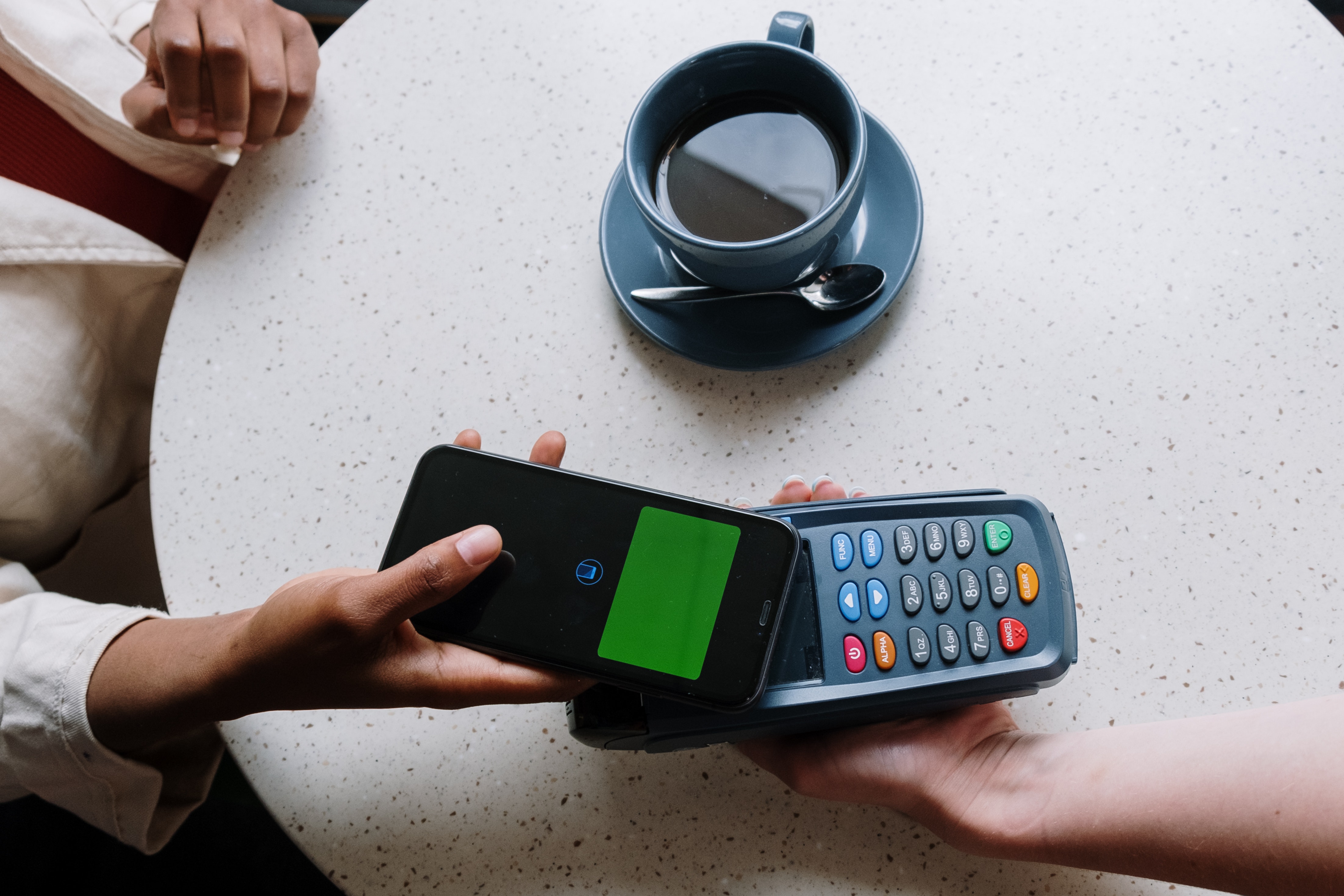RESOURCES
Here's Why the Metaverse Is the Next Big Thing for QSR Brands
Even though the metaverse continues to live somewhere between the realm of mythical and actuality, several marketers within the QSR space have dived in and are discovering how the metaverse can be a powerful tool in their marketing arsenal.
For brands, this creates exciting opportunities. Marketers need to learn about why consumers frequent the metaverse to execute activations that get results. Particularly in the QSR space, brands are uniquely positioned to capitalize on consumer social experiences and buying journeys.
Keep reading to learn how QSR brands can jump into the Metaverse now.
Understanding Macro Trends for Strategy & Relationship Building
At Code3, we continue to have an ongoing dialogue with brand partners about the cultural shift created by the global pandemic and how it has impacted both consumer behaviors and their buying habits. However, as marketers, only focusing on macro-trends' impact on buying habits is a miss. There are several cues we should also pay close attention to, such as changes in what consumers value, changes in their perceptions of self-identity, and changes in their human and world interactions.
Hyper-Fatigue and Taking Control
You may have read about how hyper-fatigue has created the need for stability and escape from the IRL (in real life) chaos and sensory overload. Hyper-fatigue has been attributed to the pandemic, climate crisis, rising economic concerns, social unrest, and technology dependence. It’s the state of our minds being stretched in many directions, dealing with and constantly being bombarded with these challenges in the media and content we consume.
Consumers are struggling with living in the reality of economic uncertainty and technology advancement overload. They crave to showcase their authentic selves in a Social world that has been filtered for so long. It’s no wonder that the metaverse became an intriguing offer – a place where one could potentially enjoy social experiences while being their true self and on their terms.
Consumers want to take control of their identity and how they experience life. This cultural shift accelerates the need for understanding how the Metaverse can play a role in subsiding the fall-out of hyper-fatigue in a post-pandemic world.
Spotting and understanding this macro-trend is just the first step. The next step is figuring out how to thoughtfully and authentically engage with consumers in a way that understands the deeper behavioral shift, provides intrinsic value to consumers, and cultivates brand engagement.
Metaverse Relevancy for QSR Brands
The key benefit of the metaverse is driving consumer engagement. This aligns with the core tenets that using AR and virtual reality within gaming are great reasons to test and experiment with these new technologies.
Take the huge engagement that Snapchat, Instagram, and others have received with the use of filters and AR technology. Consumers can feed their lack of willingness to go into stores or appetite for low-barrier product testing on a personal level by using AR to try on items such as apparel or seeing how different pieces of decor will look in their homes.
Now, when you look at this evolution of consumer habits, coupled with the undeniable need to escape real-world pressures and have experiences that may be out of your grasp, it's no wonder that driving engagement would also be at the forefront of metaverse benefits as well.
This all makes sense for why brands in general are exploring the metaverse waters, but what about its relevance for QSR brands?
Opportunities For QSR Brands
Some of the biggest challenges facing QSR and the food & beverage industry today are loyalty, shifts in buying habits, and changes in consumer spending during uncertain economic times. There was a post-pandemic craving (pun intended) to get back into dining out and have some relief from predominantly cooking at home.
However, the pandemic also gave consumers back control over what they were eating, including on-demand preparation and how they can build healthier habits. The pandemic posed an interesting challenge for consumers: how do you balance going out to eat, delivery, and take-out quality control, and get value compared to making meals at home? Consumers had to contend with deciding factors for not just where to eat, but if you should eat out, cook, or order in. Eating became about the value for the price, the accuracy and customization of your order, and convenience.
These challenges unearthed a greater need for brands to stay ahead of the curve to capture consumers' attention and find new avenues to connect with customers on a deeper level that matches their changing behaviors. The metaverse can provide a unique way to drive brand loyalty that goes beyond discounts but provides meaningful connections and experiences.
According to Hubspot, 54% of consumers state that their online relationships are just as important as in-person relationships and 51% say they can more easily be their authentic selves in virtual worlds. The ability to replicate in-person experiences and foster co-creation is also enticing to consumers within the metaverse and brands have the opportunity to bridge the gap between the digital and physical worlds by providing next-level e-commerce experiences.
Driving Loyalty
How does this equate to driving loyalty within the QSR space? Imagine leaning more towards gamification where providing virtual rewards for brand interactions can not only be redeemed for in-restaurant or delivery items but also receive virtual goods to use with your avatar or unlock VIP virtual experiences such as concerts.
This approach not only yields omnichannel benefits but also encourages deeper brand interactions that can make you stickier and win the attention war. Additionally, when it becomes increasingly difficult for brands to gain new loyalty holders amongst Millennials and GenZ, tapping into the metaverse could be the trojan horse used to win loyalty. GenZ and Millennials are reported to have a stronger understanding of the metaverse despite just 38% of Americans reporting familiarity.
QSR Metaverse Pioneers
Several QSR brands have stepped into the metaverse with innovative executions that are geared toward driving intrinsic experiences and loyalty. In 2022, Chipotle became the first brand to enable Roblox players to exchange in-world currency for real-world items. On National Burrito Day, Roblox players were encouraged to roll a burrito to earn Burrito Bucks in exchange for an entree code that could be redeemed on the Chipotle app.
Chipotle also took new menu items to new heights by debuting their new Garlic Guajillo Steak on Roblox and allowed users to get product information and cooking tips. Burger King awarded customers NFTs when they scanned the QR codes of certain food items, and Wendy’s launched various activities that unlocked real-world purchases within Meta’s Horizon Worlds.
To The Metaverse and Beyond: Steps to Evaluating and Entering A New Space
As brands and consumers become increasingly knowledgeable about the metaverse, it’s important to keep the following in mind when evaluating and entering this new space:
- Does the metaverse align with your brand positioning and ethos?
- How is your specific target audience interacting with the metaverse? What types of behaviors do you see that would provide relevancy and receptivity for this type of experience?
- How is your competitive set, direct, and category-engaging with the metaverse and is there any white space that your brand can create for itself?
- What types of experiences and rewards would your consumers gravitate towards?
- How can you continue to engage with consumers via experiences and data capture to drive loyalty?
There's still a lot to explore and learn. The first step for QSR brands is understanding how you can leverage the metaverse to connect with consumers based on behavioral shifts and in return, unlock brand engagement and loyalty. As we say at Code3, the funnel is fully collapsed – brands need to be ready to engage with consumers wherever they are, and that includes the metaverse.
Want to talk more about the metaverse and how we can work together? Contact us to learn more or set up a time to talk.
SIGN UP FOR OUR WEEKLY NEWSLETTER

News, Views, and Valuable Resources
Delivered to Your Inbox Each Week


